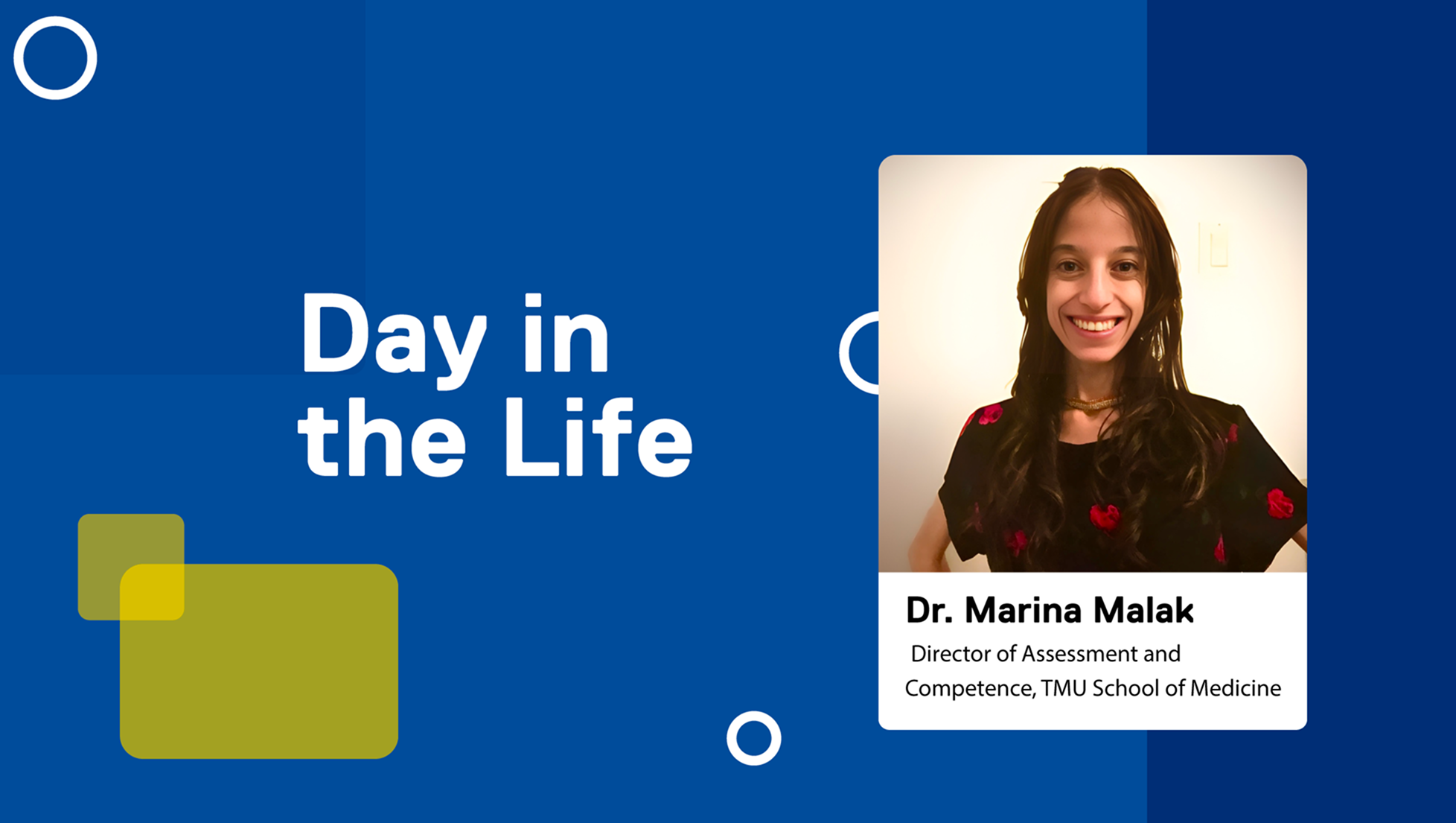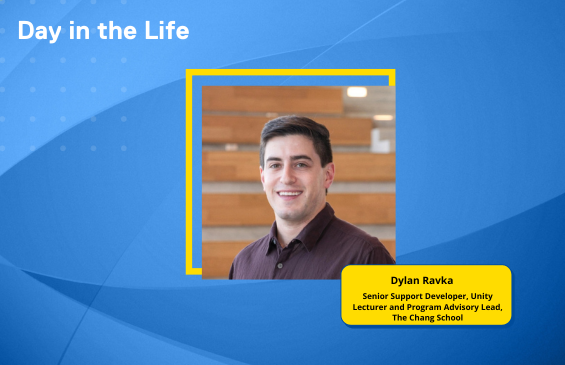A Day in the Life: How Dr. Marina Malak Balances Patient Care and Medical Education

September 30, 2025
Very seldom in life do many people get the opportunity to be a part of something that’s history in the making. For Dr. Marina Malak, her journey as a faculty leader with Toronto Metropolitan University’s (TMU) School of Medicine – the first medical school to open in the GTA in over a century – has been transformative to say the least.
“I joined when there was nothing – just spreadsheets and big ideas,” recalls Marina, who’s been involved since day one as the Director of Assessment and Competence at the TMU School of Medicine. “To see it progress into actual programs with residents, evaluations, and faculty development is humbling. Being part of this from the very beginning is surreal.”
I joined when there was nothing – just spreadsheets and big ideas.
— Dr. Marina Malak, Director of Assessment and Competence, TMU School of Medicine
Providing Clinician Support Through Education
Marina has always had a passion for teaching, starting early in her career as a nurse, where she loved hands-on patient education at the bedside. She completed a Bachelor of Science and Nursing before pursuing a medical degree to become a family physician. When she pivoted into med school, she found that teaching was a natural extension of her skills.
“I’ve always liked to make people feel heard and encouraged,” she says. “That energy translates into teaching. When learners feel engaged, they’re more willing to tackle challenges – even difficult ones.”
In addition to her involvement with TMU School of Medicine, Marina has also been able to use her passion for teaching by partnering with The Chang School to pilot two microcredentials that are part of the Microcertificate in Clinical Teaching for Academic Clinicians.
“I wanted to see what tools were available for clinicians who will be teaching our residents,” she explains. “And I wanted to learn how I could better support my own faculty and residents. The feedback and assignments made it a valuable experience, even for me as a pilot participant.”
Targeted Training To Meet Real-World Demands
The microcertificate is designed for people like Marina who are practicing academic clinicians balancing demanding careers with an ongoing need for professional development. For Marina, this flexibility is key.
“We’re all busy, but we all want to learn,” she says. “Because Curv Microcredentials are asynchronous, that allows you to study on your own time, but still complete assignments and get meaningful feedback. It’s not just a checkbox exercise – you can walk away with tools you can apply right away.”
This approach to training is key in helping public service professionals stay relevant in a rapidly changing environment with physician shortages and increasing pressures on healthcare. The founding dean of TMU’s School of Medicine, Dr. Teresa Chan, emphasizes the importance of the microcredential model. In an article published earlier this year, she pointed out that with new medical schools opening across Canada and more medical professionals entering the field, TMU is committed to equipping faculty with resources to feel competent and confident in their teaching as well as to continuously elevate their practice.
A Day in the Life of Dr. Marina Malak
Her involvement with TMU School of Medicine and The Chang School is only a fraction of her daily schedule, balancing clinical care with academic leadership. As a busy clinician in Mississauga, where she serves a range of patients from different ethnic, religious, and cultural backgrounds, every day looks different. Here’s a glimpse into a typical day in her life.
Getting Organized Early
Before her clinic hours start, Marina reviews her work and prepares for the unexpected. “Sometimes I take meetings for TMU while I’m at the clinic. I have to be ready for whatever comes my way,” she explains.
She also begins her day with practices that keep her grounded and focused, including prayer, which she says helps her bring empathy and resilience into her work. Staying organized early on helps her manage the demands of two equally important roles.
Collaboration is Key
Marina spends a lot of her day connecting with colleagues and residents – from discussing patient cases at the clinic to reviewing assessments from people taking microcredentials at The Chang School. “Having a great team at the clinic is something I don’t take for granted,” she says.
Juggling Act
Between planning her clinic schedule, seeing patients, and managing TMU responsibilities, Marina’s schedule requires careful balance. “Juggling two jobs is hard, but I love it,” she admits. “I get both sides of medicine: clinical and academic.” Having this dual perspective adds to her practice and contributions to medical education.
Remembering the Essentials
Another part of her daily preparation is creating a safe and welcoming environment for patients. From masking and hand hygiene to tidying the exam room, Marina pays close attention to details that help set a professional and reassuring tone for the day.
Balancing Her Two Worlds
At the end of the day, Marina has found a way to embrace the challenge of working across two worlds. “I love spending time with my family – there’s nothing like relaxing, debriefing, or playing with the ones you love the most that love you,” she says. Marina adds she also enjoys reading, puzzles, as well as arts and crafts.
Cultivating a Culture of Continuous Growth
For Marina, continuing medical education isn’t optional – it’s essential. She sees the microcertificate as part of a larger culture of innovation and improvement at TMU.
“When do you ever get the chance to build something from scratch?” she says, referring to her involvement with TMU School of Medicine. “We’ve been able to learn from the wins and blunders of other institutions, but also tailor things to our unique context – our hospitals, our communities, our internationally trained learners. It’s ambitious, and it’s not always easy, but it’s deeply rewarding.”
That sense of dedication runs through everything she does, from directing assessments for the family medicine residency program to launching a vodcast called,”Keep it CLEAR (Constructive, Learner-centred, Effective, Actionable, Relevant)” that helps faculty and residents give and receive clearer feedback.
“It doesn’t feel like just a job,” she adds with a smile. “It feels like my baby. And I’ll keep nurturing it, learning, and improving every day.”


